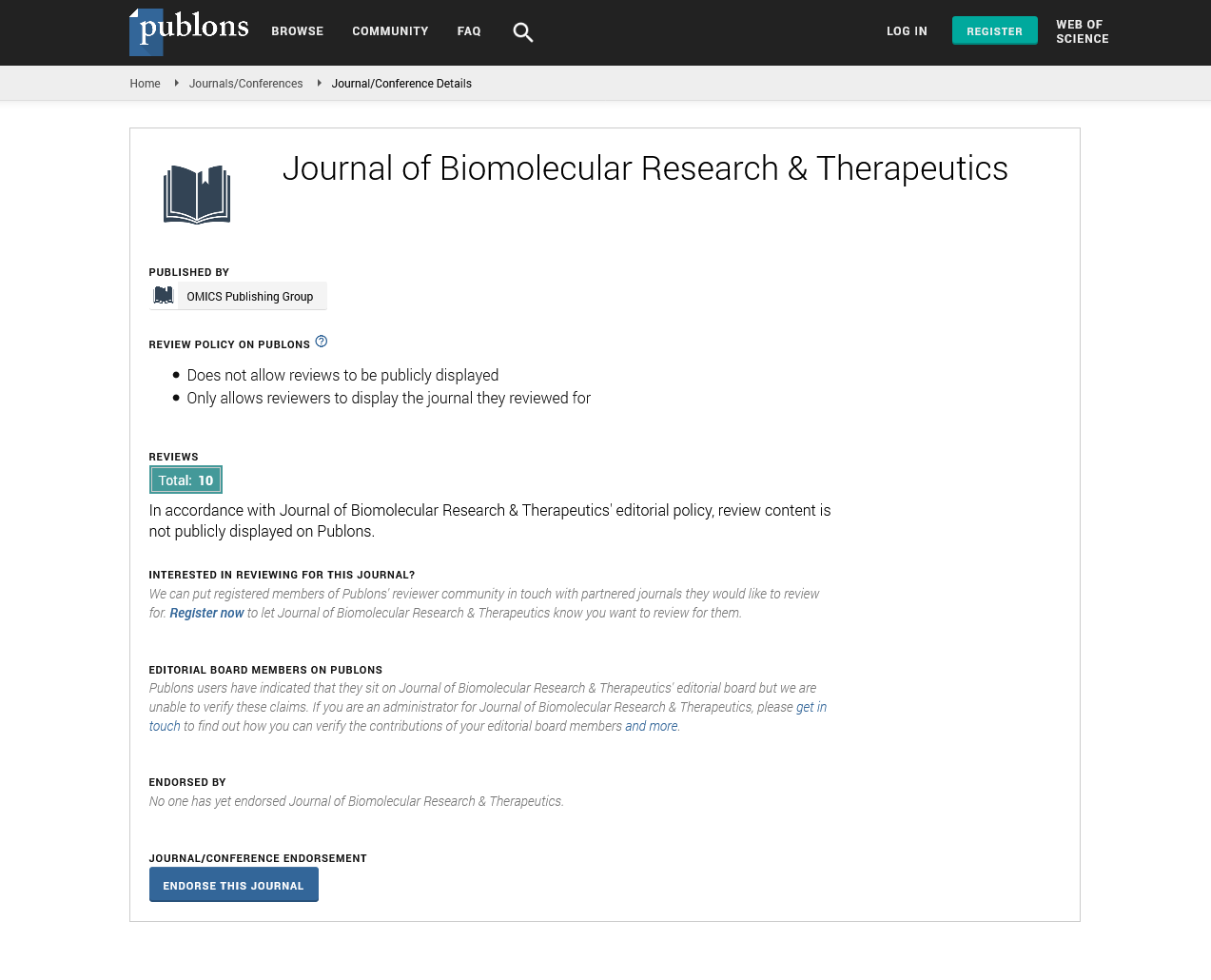Indexed In
- Open J Gate
- Genamics JournalSeek
- ResearchBible
- Electronic Journals Library
- RefSeek
- Hamdard University
- EBSCO A-Z
- OCLC- WorldCat
- SWB online catalog
- Virtual Library of Biology (vifabio)
- Publons
- Euro Pub
- Google Scholar
Useful Links
Share This Page
Journal Flyer

Open Access Journals
- Agri and Aquaculture
- Biochemistry
- Bioinformatics & Systems Biology
- Business & Management
- Chemistry
- Clinical Sciences
- Engineering
- Food & Nutrition
- General Science
- Genetics & Molecular Biology
- Immunology & Microbiology
- Medical Sciences
- Neuroscience & Psychology
- Nursing & Health Care
- Pharmaceutical Sciences
Magda Carvajal-Moreno
Magda Carvajal-Moreno
Departamento de Botánica, Instituto de Biología, Universidad Nacional Autónoma de México,
Coyoacán, 04510 México DF
Mexico
Publications
-
Review Article
Mycotoxins that Affect the Human Cardiovascular System
Author(s): Magda Carvajal-Moreno Magda Carvajal-Moreno
Mycotoxins are toxic secondary metabolites produced by fungi in the field or during storage; these fungi are mainly saprophytic molds growing on foodstuffs or animal feeds. These molds produce chemical compounds of low molecular weight that are not detected by antigens and hence are insidious poisons with no obvious symptoms. Since 1960, mycotoxins have been considered responsible for diseases and death in domestic animals and humans. Mycotoxicoses, the diseases caused by mycotoxins, have been responsible for major epidemics in humans and domestic animals since agriculture was developed. Each of these diseases is caused by specific molds that produce one or more potent toxins, usually in one specific type of commodity or feed. Among the main mycotoxigenic fungi are the genera Aspergillus spp., Penicillium spp. and Fusarium spp. The symptoms caused by mycotoxins can be acute or chronic.. View More»
DOI: 10.4172/2167-7956.1000124

